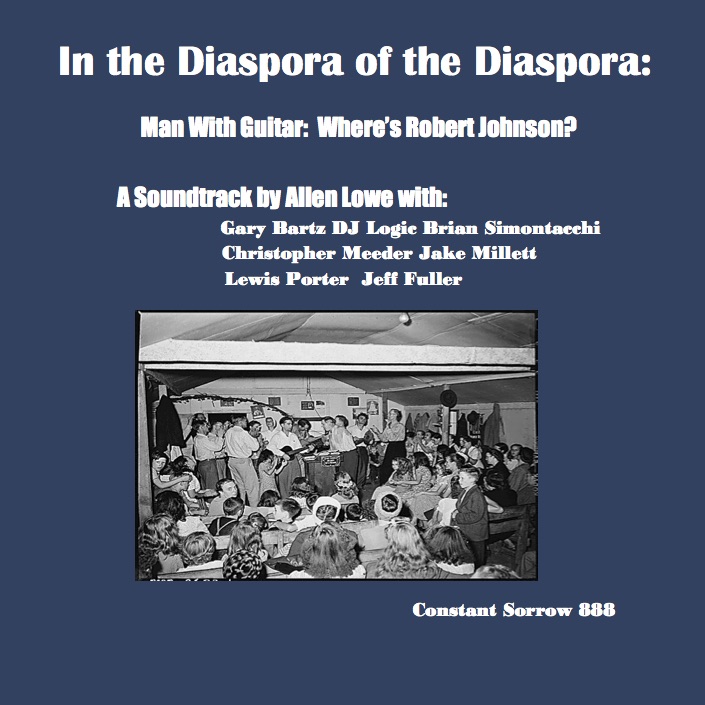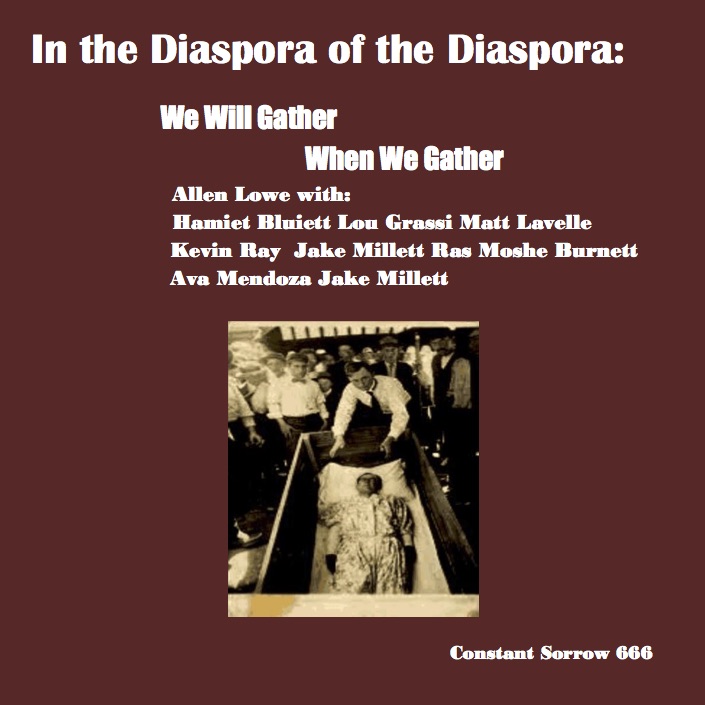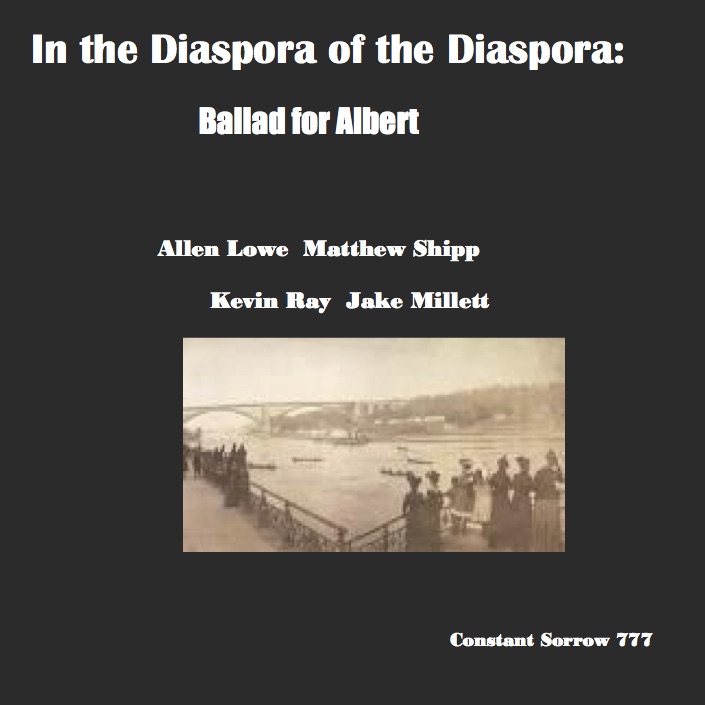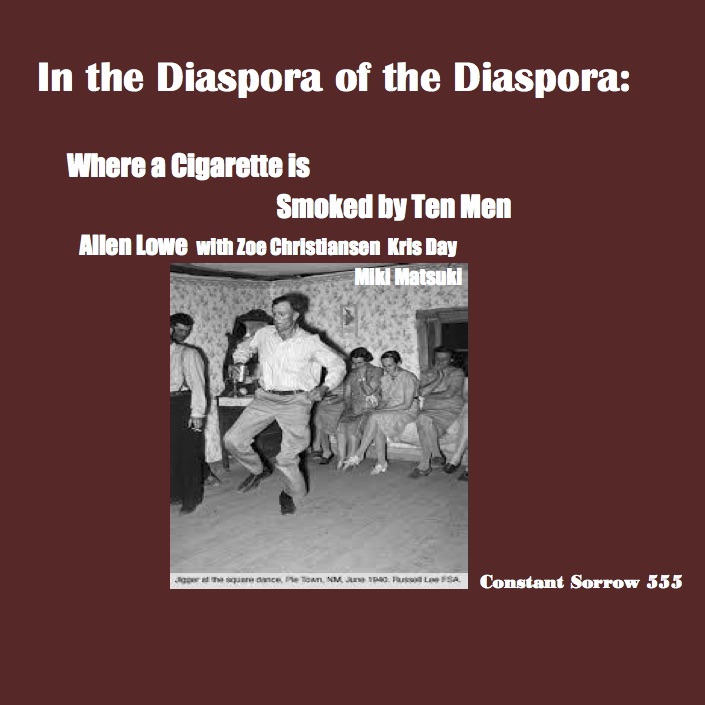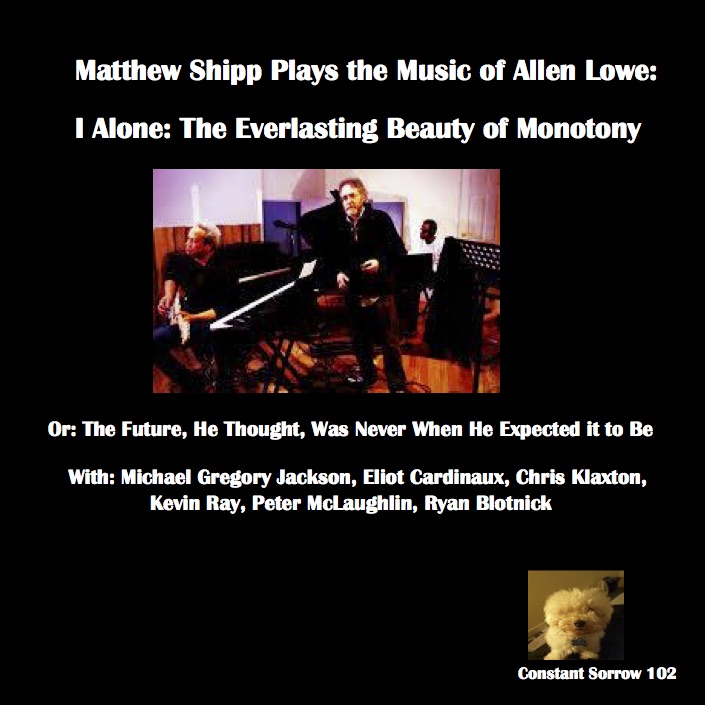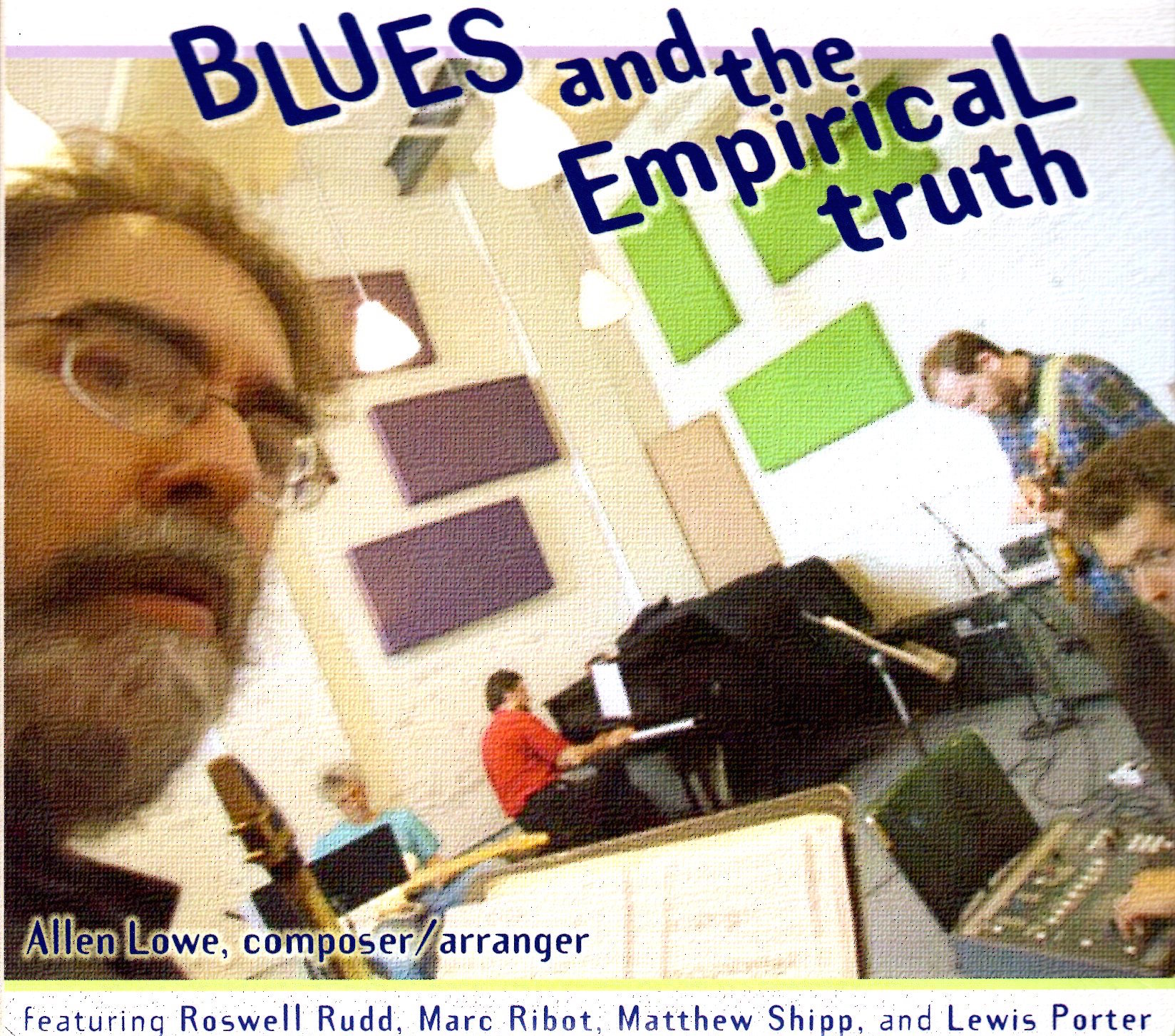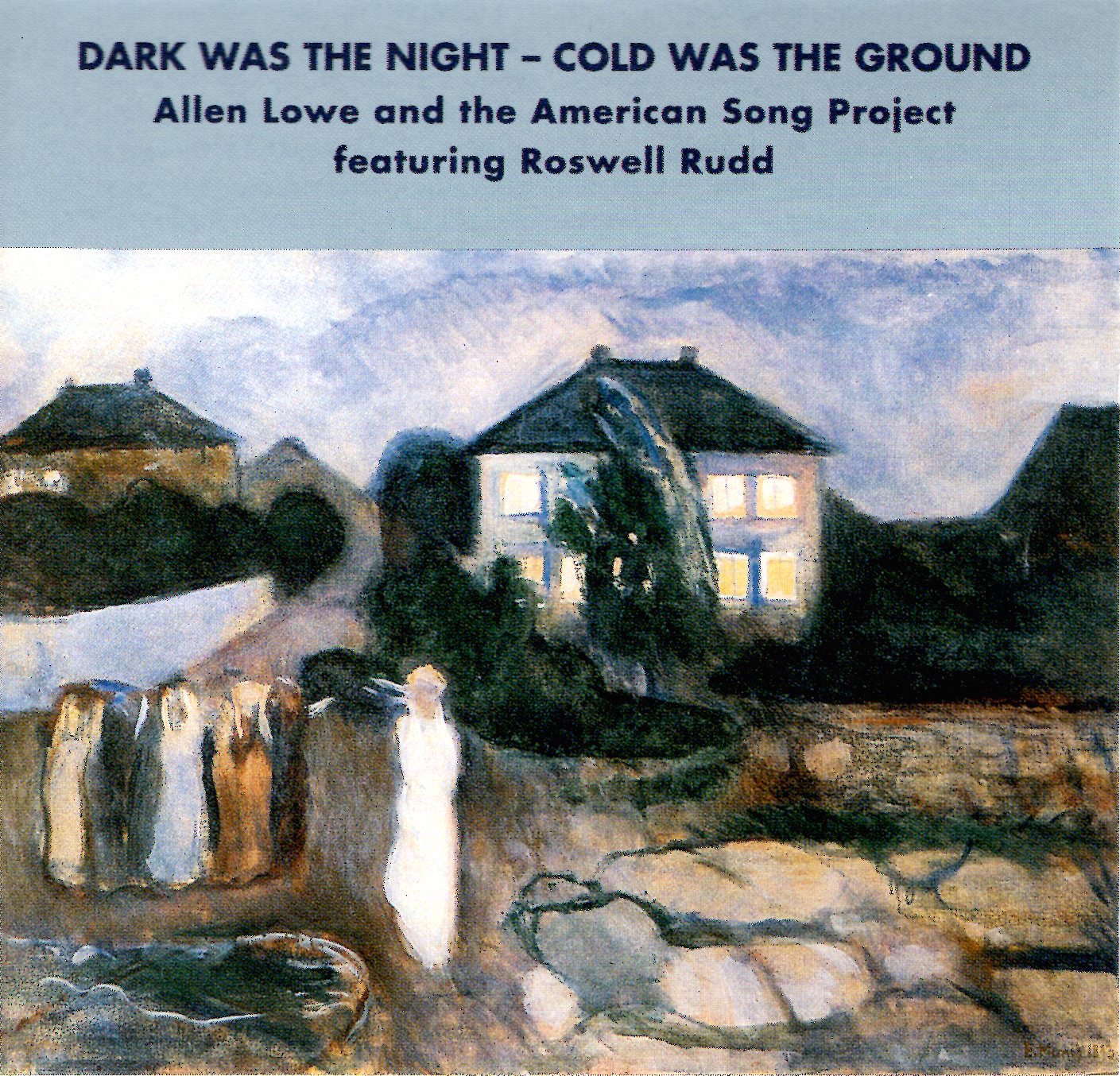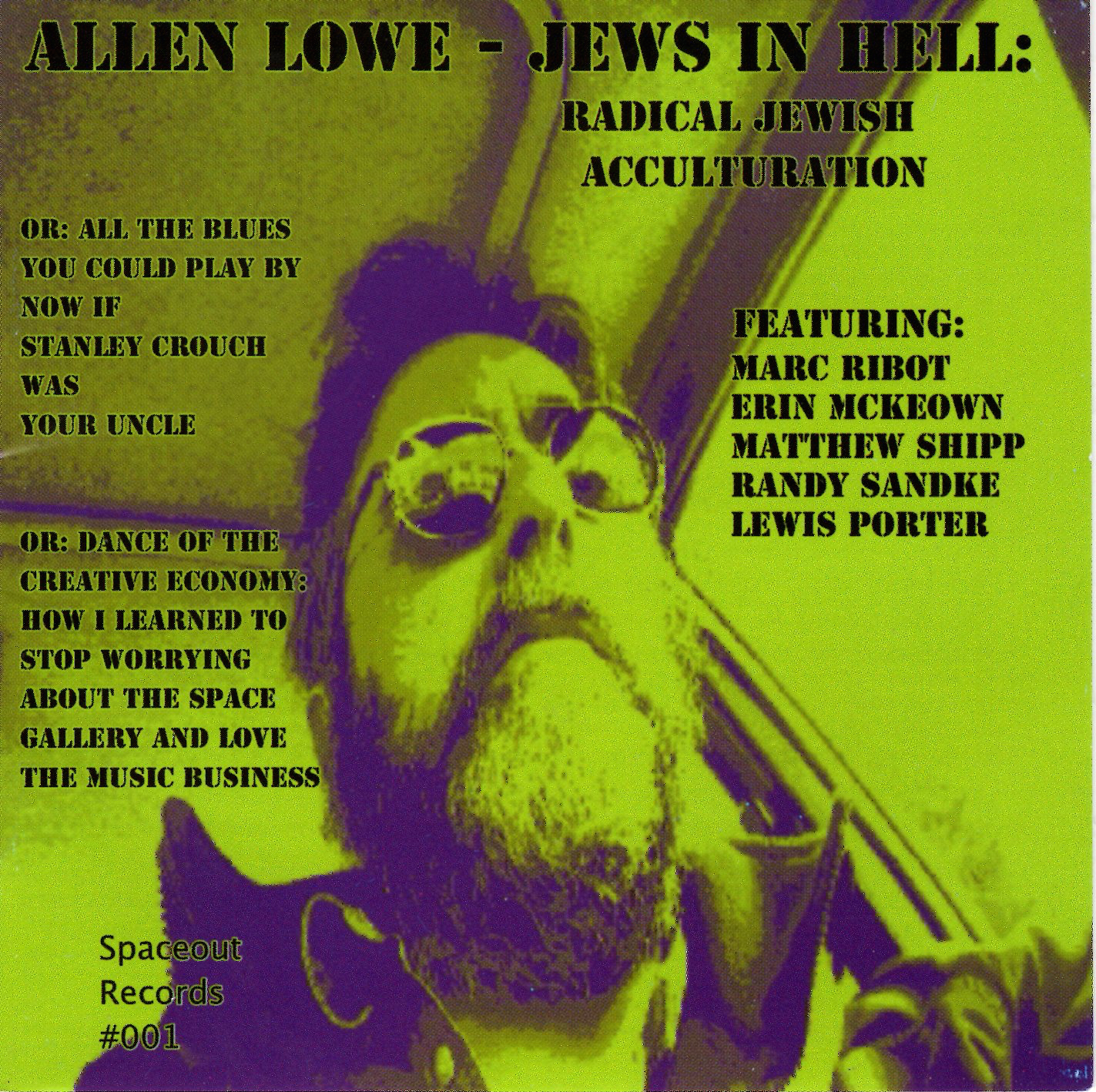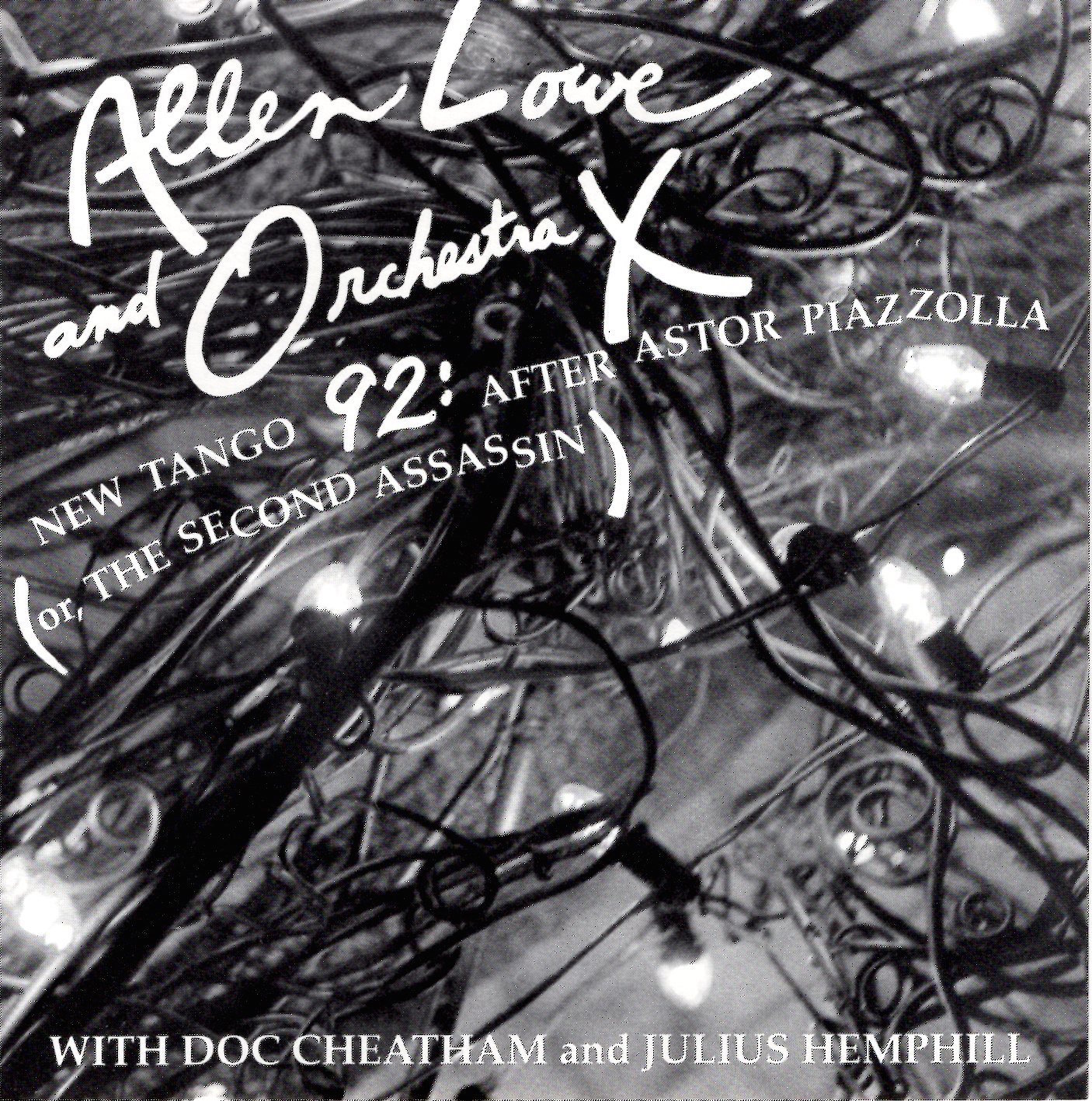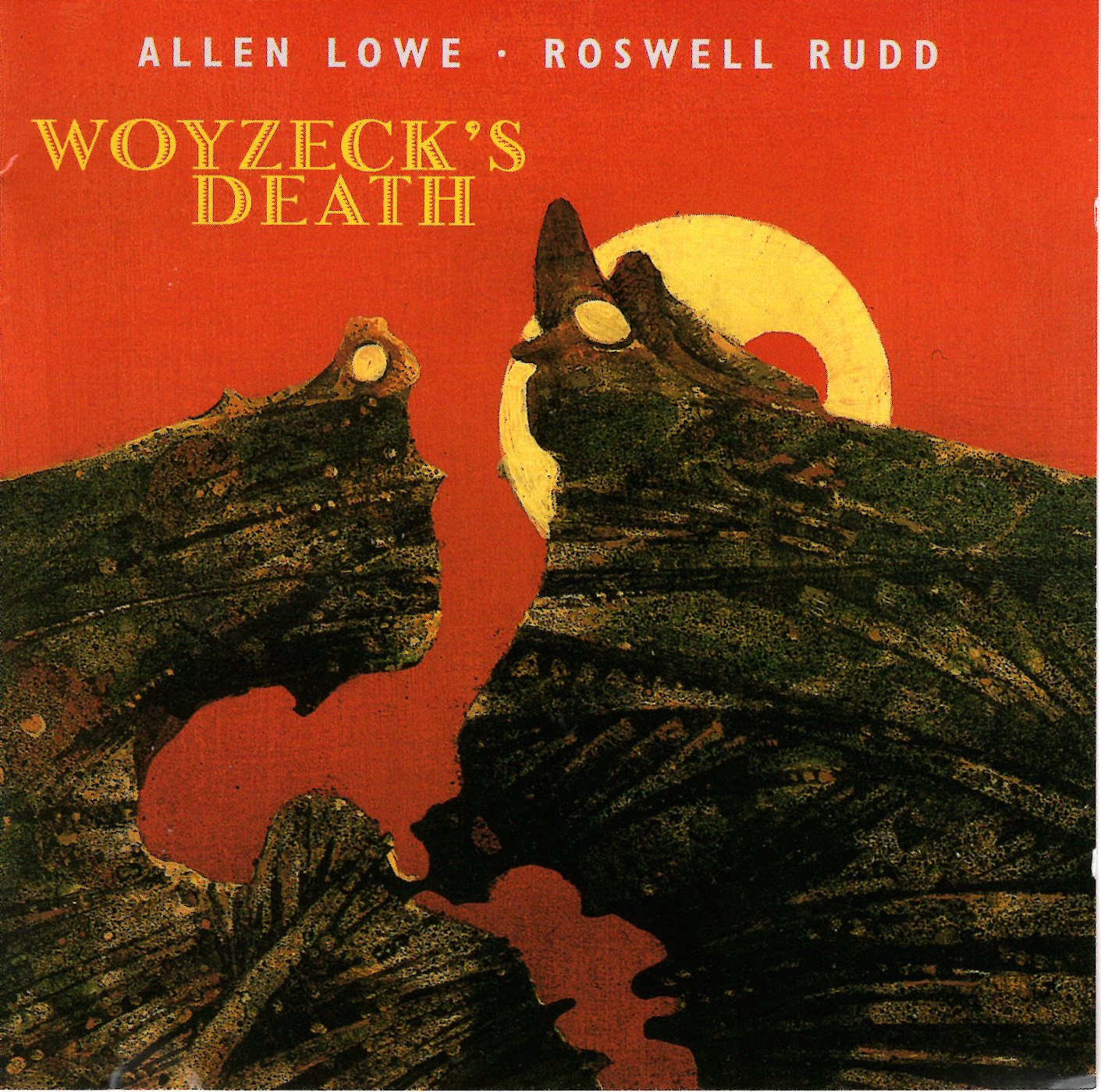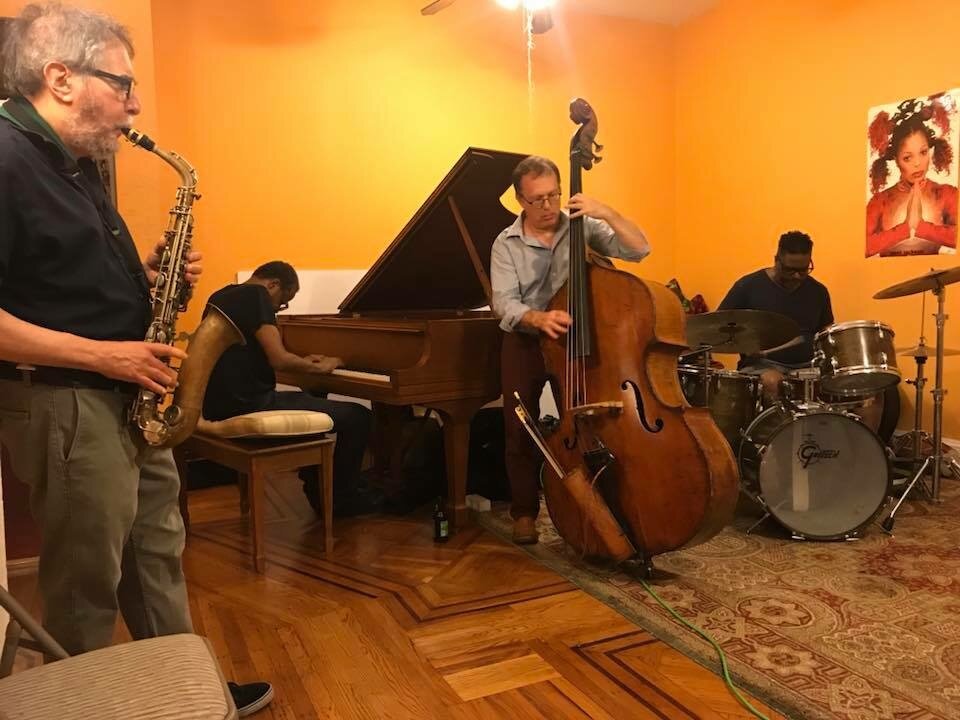When I wrote these pieces and recorded this CD I was very much in thrall to the work of Astor Piazzolla, whose writing and playing helped me, at the very least, to work my way out of the bebop box. I was also in the process of answering Wynton Marsalis yet once more – namely his regular put downs of jazz people who were attempting to appropriate various aspect of “world music.” I wanted to show that not every jazzer who went in this direction was a stylistic dilettante.
With a phone call I brought Julius into the project and we went into the Knitting Factory to record – with the great, late David Baker at the tape controls. David had something of a reputation for being difficult, but he was a prince that night, and we got along great (I remember in particular, as we waited, his telling me that he had a stash of recordings that he had made of Civil Rights workers talking and singing during the height of the Civil Rights movement, though I’m not sure if this material has ever seen the light of day). Also of note is that we were supposed to have about 2 hours to set up, but Michael Dorf (owner of the Knitting Factory) decided, without informing me, to book the room for a party just prior to our show. So we had all of, maybe, 20 minutes to set up 9 musicians for a recording, and Baker was amazing – wam, wam, a mic here, a mic there, then into the recording booth, a little compression, and away we go, live to 2 track at the Knitting Factory.
“Allen Lowe is one of the most astute jazz musicians on the planet in that he understands something primary about music: that it is part of culture, the grit and grime of it as well as the elegance and charity it can supply. He’s a political cat in that he understands that music is never really free of ideology. This suite and its one or two extra tracks are a cultural attempt to courteously send up the middle finger to the would-be new traditionalist fascists, of which include, at the time this was recorded, Wynton and his cronies, who are most definitely the establishment emissaries of what jazz used to be. Lowe’s band, who includes the late trumpeter Doc Cheatham (who was in his late eighties at the time this was recorded) and the late vanguard composer and saxophonist Julius Hemphill, have recorded a suite that employs not necessarily tango thematics, but its drama and melodic sensibilities. Lowe’s saxophone playing has been deeply affected by the bandoneon of Astor Piazzolla, in addition to his many and varied jazz influences. This is not an academic suite, folks, this is some stomping, fine music played by a big band who understands more than a little about groove and rhythm. There is so much here, so many funky, gritty bumps, grinds, and shouts and so much lyrical and intervallic invention and harmonic rabble rousing, that it’s useless to talk about the individual compositions. It is important to say that this is a major work, one that will hopefully continue to be performed long after the emissaries of official culture have retired to their big houses with armed guards at the gates to protect them from real-life music like The Second Assassin. Gritty, real, and full of humor and even an occasional vulgar note or three, The Second Assassin is the antidote for the American malaise.”
The result was a CD that probably represents the best work I’ve ever done (until, maybe, Blues and the Empirical Truth). Very decent arrangements (I wrote ’em), incredible playing, lots of energy, the Fuller/Kaczynski Juggernaut, and Julius at the center of it all, sitting on a chair and playing into a nice AKG 414 (I owned two of these babies at the time) with all of his ample heart and soul. Though I’ve never been completely happy with my own tenor playing on record (partly because, working a day job, I never had enough damn time to practice) I like my solos on March of the Vipers (reference to Louis Armstrong and smoke) and Perlasca (a tribute to an Italian who rescued thousands of Jews from the Nazis).
FYI, working the door that night at the Knitting Factory was a young guy who asked me to send him a copy of the CD when it was completed. I did, and this guy signed the review M. Doughty when it appeared in a downtown newspaper – years later I realized that this was none other than Mike Doughty, later of the band Soul Cough and, these days, neo-Christian, reformed alkie Folkie.
The Prelude and Finale were recorded live to DAT in my living room in the Fairhaven section of New Haven Connecticut (Atwater Street, to be exact) with myself, Jeff and Ray, and the always-wonderful Doc Cheatham, who graciously took the train up from New York City. When I mentioned to Doc that his playing on these somehow reminded me of Booker Little, he laughed and said, “that’s funny, I used to sub for Booker in Latin bands.” Doc also remembered working on the vaudeville circuit in New Haven for the Greenlea family (whose descendants, if I recall correctly, still, at the time, ran a club in the black, Dixwell section of town, called The Monterey, where I used to sit in with the organist Bobby Buster). Doc also happened to mention, not so incidentally, that this was probably a bit AFTER the time that he worked with Bessie Smith, and definitely after the time he subbed, in the 1930s, for Louis Armstrong at the Vendome in Chicago.





